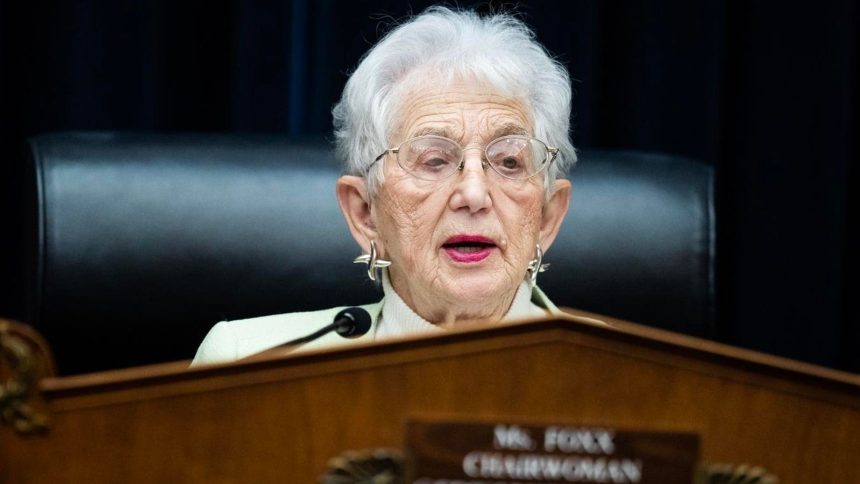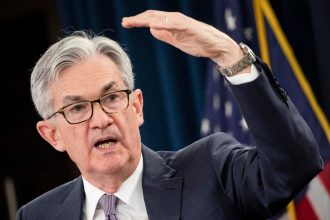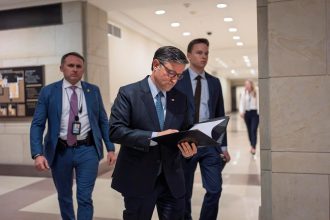The Biden administration has suspended student loan payments for three million borrowers starting this week. The decision follows a series of court rulings that threatened to cause widespread chaos for the student loan system.
The court decisions issued last week blocked elements of the Saving on a Valuable Education plan, a new income-driven repayment option that offers borrowers lower monthly payments and eventual student loan forgiveness. The Supreme Court then released a broader decision only days later, overturning four decades of precedent and threatening a wide array of federal regulations, potentially including those governing key student loan repayment and forgiveness programs.
Advocates for borrowers had warned that the dizzying changes could wreck an already overstrained student loan system. “For 40 million people trying to manage their student loans, it’s chaos,” said Abby Shafroth, Co-Director of Advocacy at the National Consumer Law Center in a statement last week.
The Education Department opted to place at least some borrowers into an administrative forbearance while the legal challenges continue. Here’s the latest.
3 Major Court Decisions Threaten To Upend Student Loan Forgiveness And Repayment Plans For Millions
A coalition of Republican states, led by Missouri and Kansas, filed legal challenges to President Joe Biden’s SAVE plan in the spring, seeking to topple the program. Initially released last fall, SAVE offers lower monthly payments than other IDR plans, interest subsidies to eliminate runaway balance growth, and multiple pathways to student loan forgiveness.
Last Monday, judges in Missouri and Kansas granted the challengers’ request for a preliminary injunction, blocking key elements of the SAVE plan. One judge blocked lower payments that were set to go into effect for millions of borrowers this month. Another judge halted student loan forgiveness under the program. Other elements of the SAVE plan remain in effect as the Biden administration appeals the rulings, although the program’s ultimate fate remains uncertain.
Days later, the U.S. Supreme Court issued a landmark decision overturning 40 years of precedent requiring federal courts to defer to the expertise of federal agencies when interpreting ambiguities in statutory text and associated regulations. While the ruling will have broad impacts for nearly every American in the coming years, the most immediate consequences may be felt by student loan borrowers, as courts take up challenges to student loan forgiveness and repayment programs that have largely relied on Congress delegating rulemaking authority to the Education Department.
Biden Administration Suspends Student Loan Payments For 3 Million Borrowers
In the wake of these court decisions, the Biden administration has placed three million borrowers enrolled in the SAVE plan into a temporary forbearance, pausing their payments to give loan servicers more time to comply with the new court orders.
Loan servicers were already in the process of recalculating borrowers’ payments to implement the more favorable repayment formula set to go into effect on Monday. But with that updated formula now blocked, loan servicers must go back and recalculate millions of borrowers’ payments yet again, and they simply don’t have time to do that in time for the July (or even the August) billing cycle.
During the forbearance period, interest will be suspended. So, borrowers should not be penalized by balance increases. However, unlike past administrative forbearances, the payment suspension period will not count toward student loan forgiveness under IDR or the Public Service Loan Forgiveness program, according to The New York Times. The department has not made clear how long the forbearance will last, although at least some borrowers are being told that student loan payments could be suspended into the fall.
An additional four million borrowers have no current payment obligation under SAVE. Their situation should remain unchanged, for now.
Advocates And Regulators Warn Court Rulings Will Jeopardize Student Loan Forgiveness And Repayment Programs
Advocacy groups had been pushing the Biden administration to enact some sort of payment pause in response to the court rulings, both as a matter of justice for borrowers but also to mitigate the anticipated strain on the student loan system.
“While we are frustrated by the continued legal challenges brought to limit borrower relief, we are pleased to see the Department of Education take quick and decisive action by placing 3 million borrowers in an administrative forbearance,” said Natalia Abrams, president of the Student Debt Crisis Center, in a statement on Friday. “This administrative forbearance will provide relief to millions, but it leaves two-thirds of borrowers facing uncertainty and financial instability.” Abrams called for a wider payment pause and additional clarifying guidance from the administration.
In a court filing last week, the Consumer Financial Protection Bureau — a federal regulatory agency that oversees the financial services sector — warned that the whiplash of multiple court decisions could cause major disruptions for student loan forgiveness and repayment programs, including miscalculated payments and rampant misinformation provided to borrowers.
Meanwhile, Republican lawmakers blasted the Biden administration for giving borrowers a reprieve. “Congressional Republicans provided President Biden ample opportunities to support policies that would address the root causes of student debt and fix our broken higher education financing system,” said House Committee on Education and the Workforce Chair Virginia Foxx (R-N.C.) in a statement on Friday. “Instead, he has opted to give away taxpayer money and illegally rewrite loan contracts.”
House Republicans introduced legislation earlier this year that would reform the student loan system. The proposal would maintain an income-driven repayment plan, but one that is less generous than SAVE, and would eliminate IDR-associated student loan forgiveness and reverse other Biden administration student debt relief initiatives.
What Borrowers Pursuing Student Loan Forgiveness And IDR Plans Should Know
According to the Education Department, borrowers currently enrolled in SAVE will remain in the program, at least for now. And borrowers can continue to sign up for SAVE. However, the department has temporarily taken down the online IDR application portal (paper applications are still being accepted, however).
Borrowers pursuing student loan forgiveness through PSLF can still qualify. However, PSLF borrowers on the SAVE plan may not accrue qualifying months during the administrative forbearance period, according to The New York Times.
Borrowers may want to sign up for Education Department updates, as the situation remains very much in flux.
Update: In yet another new twist, following a ruling on Monday from the 10th Circuit Court of Appeals, the Education Department will be implementing the lower monthly payments under SAVE originally planned to go into effect in July. Impacted borrowers will continue to remain in forbearance during July, but their payments should resume in August, according to department officials.
Read the full article here














